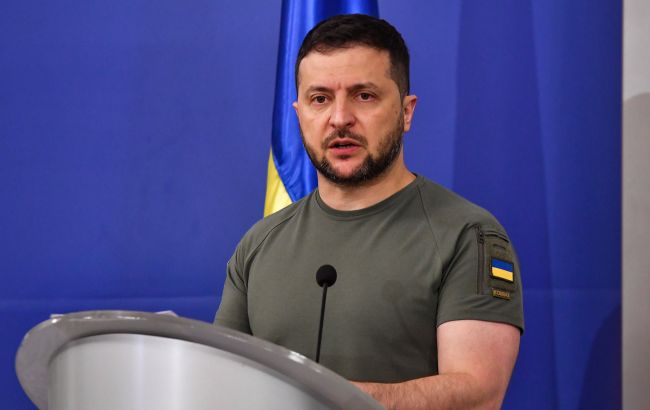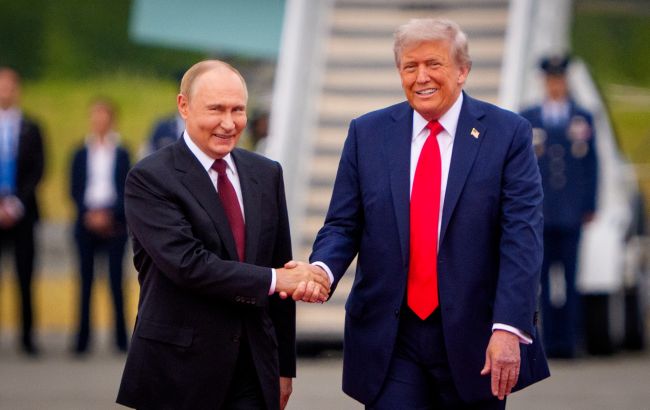The intersection of cutting-edge technology and competitive e-sports has never been more evident than in the evolution of Counter-Strike 2 and the emergence of extraordinary young talents on FACEIT. As CS2 continues to redefine competitive gaming through technological innovation, FACEIT has become the premier platform for discovering and nurturing the next generation of e-sports champions, with young talents setting unprecedented records that showcase the future of competitive gaming.
The Technological Foundation of Modern E-sports
FACEIT’s Revolutionary Platform Technology
FACEIT represents a technological milestone in e-sports infrastructure, founded in London in 2012 as a leading independent competitive gaming platform. The platform has evolved into a comprehensive ecosystem that supports over 22 million serious players worldwide, utilizing advanced matchmaking algorithms, anti-cheat systems, and 128-tick servers that provide the technological foundation for fair and competitive gameplay.
The technology behind FACEIT includes sophisticated ranking systems using ELO calculations, automated tournament management, and real-time statistical analysis that enables players to track their progress with unprecedented precision. This technological infrastructure has created an environment where young talents can develop their skills systematically and compete against opponents of similar skill levels.
Counter-Strike 2’s Technological Evolution
CS2 represents the culmination of decades of technological advancement in competitive gaming. The transition from CS:GO to Counter-Strike 2 brought fundamental changes to game mechanics, visual rendering, and networking architecture that have reset competitive records and created new opportunities for young talents to excel.
The implementation of new match formats, improved server technology, and enhanced anti-cheat systems has created a more competitive and fair environment where young talents can showcase their abilities without technological barriers hindering their performance.
Rising Stars: Young Talents Breaking Records
MaiL09: The Swedish Prodigy
The most remarkable young talent currently dominating FACEIT is 16-year-old Liam ‘MaiL09’ Tügel, who has achieved the unprecedented feat of reaching the #1 spot on FACEIT’s global leaderboards. MaiL09 reached TOP 1 on FACEIT with an ELO rating of 4,860, surpassing established professionals and becoming the youngest player ever to achieve this milestone.
Born in 2009, MaiL09 represents the new generation of e-sports athletes who have grown up with advanced gaming technology. His achievement of climbing to the top of the global leaderboards demonstrates how young talents can leverage modern gaming platforms to compete at the highest levels. He has played over 3,500 FACEIT matches while maintaining a 57% win rate, showcasing consistency that rivals professional players.
Breaking Age Barriers in Competitive Gaming
MaiL09’s success story illustrates how technology has democratized competitive gaming, allowing young talents to compete on equal footing with experienced professionals. If he manages to maintain his position until the end of the season, he will break the record currently held by Danil ‘donk’ Kryshkovets by six months and nine days, becoming the youngest FACEIT champion in history.
The Swedish prodigy is registered as competing in tournaments at the age of just 11 years old, and as a 13-year-old, he was invited to compete in the FACEIT Pro League. This early exposure to competitive e-sports through technological platforms demonstrates how modern gaming infrastructure enables young talents to develop skills from an unprecedented age.
FACEIT’s Technology-Driven Talent Development
The Path to Professional Gaming
FACEIT has revolutionized how young talents develop their careers in e-sports through technological innovation. The platform’s structured ranking system, from Level 1 to Level 10, combined with the exclusive Challenger rank for the top 1,000 players, creates a clear progression pathway for aspiring professionals.
The FACEIT Pro League (FPL) has become a crucial stepping stone for young talents, with the platform supporting stars such as Mathieu “ZywOo” Herbaut, Robin “ropz” Kool, and Ilya “m0NESY” Osipov in their journey to professional e-sports. This technological infrastructure has created the famous “path to pro” environment that has nurtured multiple generations of elite players.
FPL Proving Grounds: Technology Meets Opportunity
FACEIT’s introduction of FPL Proving Grounds represents a technological advancement in talent identification and development. The system boasts the highest prize pool ever awarded in a public matchmaking system, featuring $100,000 in prizes for top Challenger rank players, demonstrating how technology can create meaningful opportunities for young talents.
The top three players of FPL Proving Grounds earn direct invites to the FPL and monthly stipends to support their professional development, showing how technological platforms can provide financial support for young talents pursuing e-sports careers.
Counter-Strike 2 Records and Achievements
Setting New Standards in Competitive Gaming
CS2 has witnessed numerous records being established since its launch, with young talents often leading these achievements. The game’s first anniversary has been marked by exceptional performances that showcase the capabilities of both the technology and the players utilizing it.
During competitive matches, young talents have achieved remarkable statistical records. For instance, the Swedish talent poiii achieved 39 frags against Zero Tenacity in an online match, while donk holds the LAN record with 38 frags at ESL Pro League S20, demonstrating how technology enables precise tracking and verification of competitive achievements.
Tournament Technology and Prize Pools
The technological infrastructure supporting CS2 tournaments has enabled record-breaking prize pools and participation levels. PGL Major Copenhagen boasted a prize pool of $1,250,000, the largest for a single CS2 tournament to date, while maintaining the technological integrity necessary for fair competition at the highest level.
Technology has also enabled longer and more complex matches, with CS2 setting its own longevity record when M80 and Fnatic played a 71-round match on Anubis, showcasing how modern gaming infrastructure can support extended competitive engagements without technical failures.
The Global Impact of Young Talent
International Recognition Through Technology
Young talents on FACEIT are gaining international recognition through the platform’s global reach and technological capabilities. Players like Mzinho from TheMongolz, who at 16 is currently the youngest player in Tier 1 professional CS2, demonstrate how technology breaks down geographical barriers in e-sports.
The technological infrastructure of FACEIT enables young talents from diverse backgrounds to compete on equal footing, with players from Sweden, Mongolia, Finland, and other countries all achieving recognition through the platform’s merit-based systems.
Technology Enabling Global Competition
FACEIT’s technological platform has created opportunities for young talents like 17-year-old Jimpphat from MOUZ, who has been lighting up servers with cerebral anchoring skills, and PR from GamerLegion, who has enjoyed his first year in Tier 1 competition at just 17 years old. These success stories demonstrate how technology enables young talents to compete at the highest levels regardless of their geographical location.
The Role of Advanced Analytics and Statistics
Data-Driven Player Development
Modern e-sports platforms utilize sophisticated technology to provide detailed analytics that help young talents improve their performance. FACEIT offers comprehensive statistical tracking that includes K/D ratios, ADR (Average Damage per Round), HLTV ratings, and specialized metrics that enable players to identify areas for improvement.
The integration of advanced analytics technology with competitive gaming has created an environment where young talents can optimize their training and development with precision previously impossible in traditional sports. This data-driven approach enables faster skill development and more targeted improvement strategies.
Technology-Enhanced Training Systems
Young talents benefit from technology that provides immediate feedback on their performance, including detailed match analysis, demo review systems, and comparative statistics against professional players. This technological infrastructure accelerates the development process and enables young talents to reach professional levels at unprecedented ages.
The Future of E-sports Technology
Emerging Technologies in Competitive Gaming
The e-sports industry continues to evolve with emerging technologies including artificial intelligence for match analysis, virtual reality training systems, and blockchain-based tournament management. These innovations will likely create new opportunities for young talents to excel and set records that were previously impossible.
FACEIT’s continued investment in technological innovation, including partnerships with cryptocurrency platforms and advanced anti-cheat systems, demonstrates the industry’s commitment to providing young talents with the best possible competitive environment.
Sustainable Career Paths Through Technology
Technology has created sustainable career paths for young talents in e-sports, with platforms like FACEIT offering monetary rewards, sponsorship opportunities, and direct pathways to professional teams. This technological infrastructure enables young talents to pursue e-sports as legitimate career options with financial stability and professional development opportunities.
Challenges and Opportunities
Balancing Youth Development with Education
The success of young talents like MaiL09 raises important questions about balancing e-sports careers with traditional education. Technology platforms must continue developing systems that support the holistic development of young talents while enabling them to pursue competitive gaming careers.
Technology’s Role in Fair Competition
Advanced technology including sophisticated anti-cheat systems and fair play monitoring ensures that young talents compete in environments free from technological manipulation. FACEIT’s commitment to technological integrity creates a level playing field where talent and dedication determine success rather than technological advantages.
The Economic Impact of Young Talent
Revenue Generation Through Technology
Young talents on FACEIT contribute to significant revenue generation through viewership, sponsorships, and tournament participation. The technology infrastructure supporting these players creates economic opportunities that extend beyond the players themselves to include content creators, analysts, and support staff.
The integration of technology with e-sports has created a sustainable economic ecosystem that supports young talents through prize pools, streaming revenue, and sponsorship opportunities, demonstrating the commercial viability of competitive gaming as a career path.
Conclusion: The Technological Future of E-sports
The convergence of advanced technology and exceptional young talents on FACEIT represents the future of competitive e-sports. Players like MaiL09 demonstrate how technological platforms can nurture and showcase talent, while the continued evolution of CS2 provides the competitive framework necessary for young talents to set new records and achieve professional success.
The technology underlying modern e-sports platforms has democratized competitive gaming, enabling young talents from around the world to compete at the highest levels and pursue sustainable careers in e-sports. As technology continues to advance, we can expect to see even more remarkable achievements from young talents who leverage these platforms to reach new heights in competitive gaming.
The success stories emerging from FACEIT and CS2 illustrate how technology serves as both the foundation and the catalyst for e-sports excellence, creating opportunities for young talents to not only compete but to redefine what’s possible in competitive gaming. The records being set today by these young talents will likely inspire the next generation of e-sports athletes, continuing the cycle of technological innovation and competitive excellence that defines modern e-sports.












